 Stefan Adegbola began performing in the theatre from the age of thirteen in amateur school and university theatre productions. Over the last ten years he has played a variety of both classic and modern roles and finally began his professional training as an actor at one of the world's most renowned Drama Schools in London in September 2010. His interests include history, politics, philosophy, literature, science, social and current affairs, all of which are harnessed and explored through his artistic pursuits. His blog, An Actor's Journal, hopes to offer some of his experiences as a young man attempting to grow and learn while forging a career in one of the most difficult professions in existence.
Stefan Adegbola began performing in the theatre from the age of thirteen in amateur school and university theatre productions. Over the last ten years he has played a variety of both classic and modern roles and finally began his professional training as an actor at one of the world's most renowned Drama Schools in London in September 2010. His interests include history, politics, philosophy, literature, science, social and current affairs, all of which are harnessed and explored through his artistic pursuits. His blog, An Actor's Journal, hopes to offer some of his experiences as a young man attempting to grow and learn while forging a career in one of the most difficult professions in existence. La Scène en Rose: The Cult of the Gay Actor Curse
J
ohn Barrowman, Simon Russell Beale, Dirk Bogarde, Wilfrid Brambell, Raymond Burr, Simon Callow, Michael Cashman, Harvey Fierstein, John Gielgud, Nigel Hawthorne, Rock Hudson, Derek Jacobi, Nathan Lane, Ian McKellen, David Hyde Pierce, John Sessions, Antony Sher, Russell Tovey, and Kenneth Williams.
You may be wondering why I’ve just listed the names of twenty actors – or you may be wiser than that by having already worked out what they all have in common. Each and every single one of those actors is or was a gay man; and I would say that each and every one of them has produced a notable body of work on stage and/or screen. There are, as well, many more names I could add, most of whom I might wish to call good or even great actors. Suggesting a link between homosexuality and great acting would be something of an absurd and self-indulgent exaggeration. However, the sheer volume of gay actors out there begs the question: “what is it about those queers that make them so good to watch?”
 |
| Rock Hudson (left). |
The proportion of openly gay actors (working or otherwise) in the business is entirely impossible to confirm, but if you consider how many there are in the Western Theatre and Cinema world alone, the relationship between sexuality and the performing arts makes itself rather clear. Let’s not forget that I’m only referring to gay men: think of how many lesbian, bisexual and transgender actors there must be out there and the figures become simply insubstantial. Indeed, the entire issue is tricky and the industry is unreliable regarding the matter; but the sense of there being so many gay actors visible and in the public consciousness is so palpable that it is no surprise the question “Who’s gay in Hollywood” is one of the most asked among tabloid journalists and gossip-mongers alike. I feel that this needs to be addressed in some way.
I am an actor in training and of the 25 people in my class at my drama school exactly 12% of us are gay: hardly an overwhelming figure. Over the years, various psychologists, sociologists, and otherologists have claimed the share of gay people in the human race to be between 1% and 33.3%. The truth is that they don’t know. None of us do; nor should we care. As one very effective UK advertising campaign stated: “Some people are gay. Get over it.” That is all we know. Likewise, some actors are gay. There is little beyond that which we can be certain of, and really, there is little beyond that which should interest us unless it has a direct impact on the work of the actor himself. So why is it of so much interest to people, be they gay, straight or anything in between?
 |
| Russell Tovey |
I would suggest that the first reason is the nature of drama, and especially the theatre. Drama is quite literally an ancient artistic activity, and various forms of it exist in every culture across the globe. Drama shows us as we are, albeit in a heightened and sometimes even abstracted manner. To have the desire to stand in a Magic Space and discover what constitutes the core of humanity requires a huge amount of confidence; but the Space is still empty, and rarely will an actor honing his craft actually know what will happen when he steps across that silver thread and into the world of the imagination. The reason I say this is because drama and acting have long been safe spaces for closeted or questioning gay men to be accepted and develop as people as well as professionals. This has inevitably led to a confidence unseen in very few other social arenas. The sexual revolution and the civil rights movements seen in the middle of the twentieth century have served to embolden this feeling of empowerment, strength and inner peace in actors, and many more have come out and spoken about themselves because of having learnt to ground themselves and be happy with who they are. Therefore, perhaps the case is not that the ratio of gay actors is higher but rather that the ratio of gay men comfortable with who they are and what they do is higher. Add to that the natural inclination that any actor has to stand up in front of a collection of people and say “look at me”, and the visibility factor increases our perception of there being a larger proportion of gay men in the performing arts than in “real life”.
However, I think there is another, more influential but far less positive reason for why the obsession with sexuality and acting is so prevalent, and it can be stripped down to two words: the media. A communicative device that was once a means for the transmission of information has gradually perverted itself into a grim and cynical parody of itself. Concerned less with truth but entertainment, the media has succumbed to ratings-driven commercialism and now pervades every aspect our existence. One glance at the news channels will indicate my point. The majority of news will be concerned with segments based on individual acts which have enough shock entertainment value to be featured. Murders, rapes, theft, and other attacks on the person will take prime position if shocking or disturbing enough. In many ways, the media itself is another theatrical form in a loose sense: consider the terms “news story”, “exposé”, and “reconstruction”. Journalists are dramatists, too.
 |
| A pre-gay Neil Patrick Harris. |
The problem is that the majority of them are not interested in offering hope, something which the theatre excels at, but keeping their audiences enthralled and appalled. The media does not reflect but controls opinion and judgement. If tabloid journalism is obsessed with revealing the private lives of people in the public consciousness, people will become obsessed with discovering every detail of people who would otherwise prefer to simply get on with their jobs. Of course, many public figures are hiding out of shame, and the argument that if one seeks attention they should be prepared to undergo scrutiny still stands; but how do actors fall into this category? Genuinely committed actors are interested in one thing: public performance of a character other than themselves. Yet this is precisely why the media pursues the line of “discovery”. The acting process is mysterious to many who have no experience of the craft, but so is the process used by meteorologists to predict the weather. No-one is interested in that processes because they don’t involve people. The media has created a “Star System”, meaning that a very small minority becomes exalted as more talented or attractive to an abnormal level. Although attitudes have changed, being gay is still regarded as a frightening abnormality, an anomaly in an otherwise stable and comfortable social structure. If a well-known actor is “revealed” to be gay, the attractive talent is muddied by the media into a discussion of their personal integrity, as if the two have anything to do with each other.
 |
| Out actor Darryl Stephens. |
The truth, however, is that the world is a dangerous, unfamiliar and strange place, and all the more exciting for it. We as humans find this difficult to accept and therefore need the safety of categorisation based on defining elements. Hence, we create fictions: “successful people” and “heroes”, “geniuses” and “pioneers”, “lead actors”, “character actors”, “black actors”, and “gay actors”. An actor is an Actor is an Actor: nothing more, nothing less. We should not be surprised by the ability of a gay actor to effectively play a sympathetic straight character, and we should celebrate the power a straight actor has when playing a sympathetic character that happens to be gay without patronising his audience. We should only accept the actor’s ability and power to make us believe, and we should not be surprised when they do. The Cult of the (Gay) Actor is a media-constructed lie, and the sooner it is toppled, the better for all of us. The play’s the thing, not its actors.
Some actors are gay. Get over it.
Stefan Adegbola wrote exclusively for
ka-os|theory.
ka-os|theory.
Visit Stefan Adegbola at An Actor's Journal













.webp)




.jpg)
.jpg)
































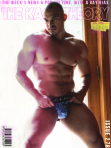











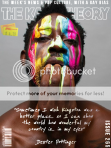
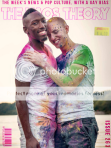



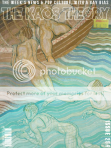
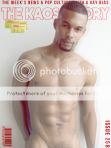
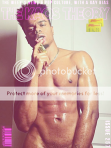
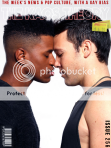
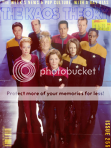
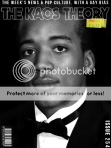
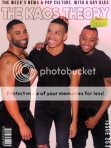
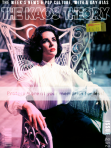
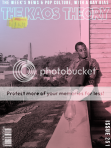

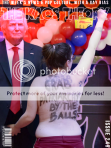




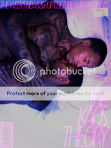

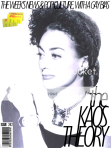
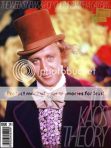
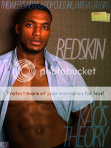
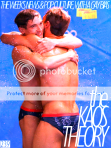
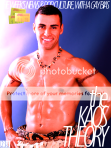
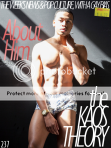
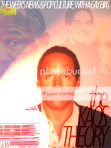
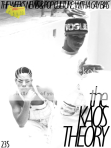
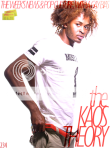
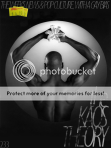
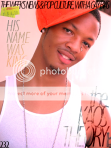

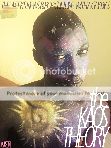


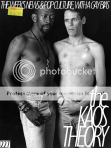


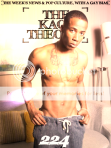

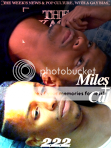
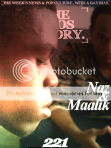
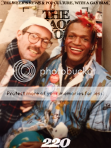
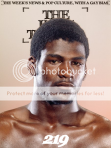
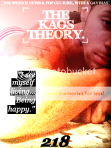
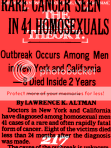
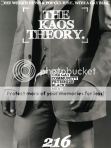

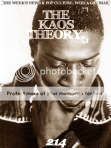
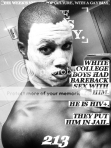
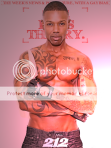

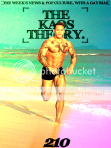
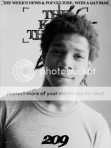
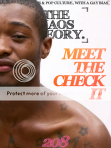
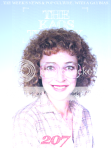
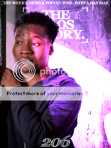
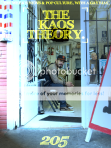
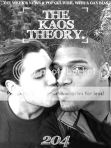

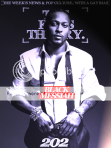
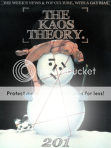
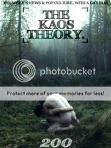
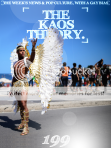
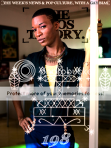
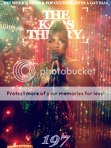
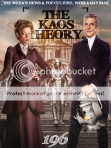
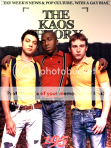

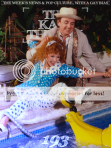



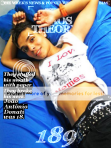



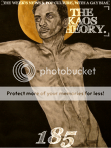
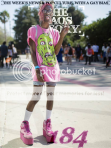
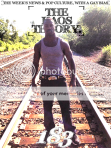
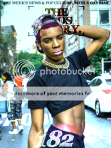


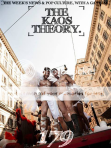

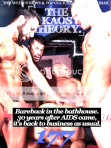
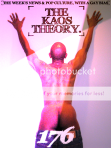
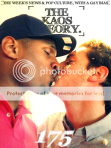
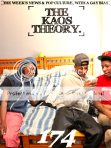



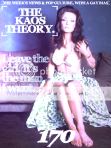
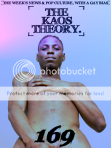
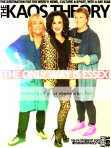


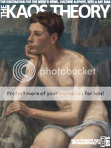





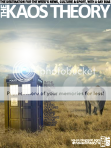

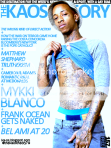

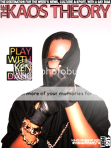
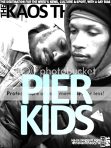

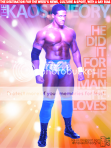
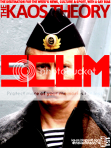

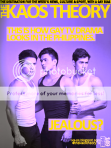
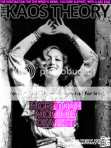
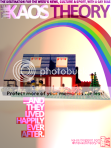
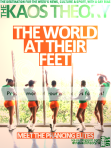
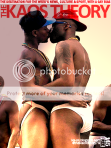
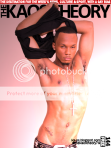
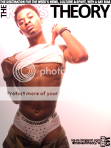

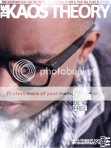
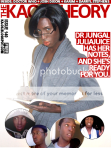
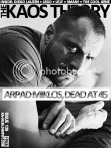

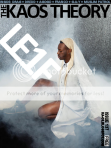
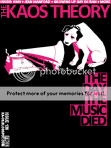



















































































































































2 comments:
I think there's a lot that's of interest here. But I don't think one can blame 'the media' for creating the star system: that was quite consciously created (& policed) by Hollywood, & gave rise to the 'Hollywood royalty' of the 1920s, 30s & 40s. Studios would screen profitable homosexual stars (at a time when being gay was illegal) from the intrusions of the media (eg Cary Grant); & precisely because homosexuality was illegal and taboo, journalists couldn't ask about it outright. Nowadays, when being gay is not illegal (in the West, anyway), and when the personally-exposing Method style of acting has become the standard, journalists can ask about sexuality (& other personal details) in a way they never could have before. That's a paradox of improved tolerance and weakening censorship, rather than of the degeneration of the media.
Moreover we live in a time when people are willingly throwing aware their privacy & want to expose every trivial detail of their lives (as witnessed by Big Brother, Facebook & Twitter) to random strangers.
Also there's a longstanding tradition associating the theatre with loose morals & concomitant deviation. Or as Kenneth Williams' father said in the 1950s, 'All the men are nancies and the women are trollops.' But back in Shakespeare's time the first Queen Elizabeth clamped down on theatrical 'immorality'. It was hotly debated whether it was more immoral to have boys playing the girls' parts, with its obvious implications, or to allow actual women on stage, flaunting themselves before lascivious male eyes.
As with everything else, people of a particular stripe will gravitate towards any profession or sphere of activity that is historically associated with tolerance (or valuation) of themselves.
I think it's worth adding that on the whole interest in who's gay centres on actors playing romantic leads. Character actors experience considerably less prurient attention.
stefan adegbola off Dr Who!! did he right this before he was a actor?
Post a Comment